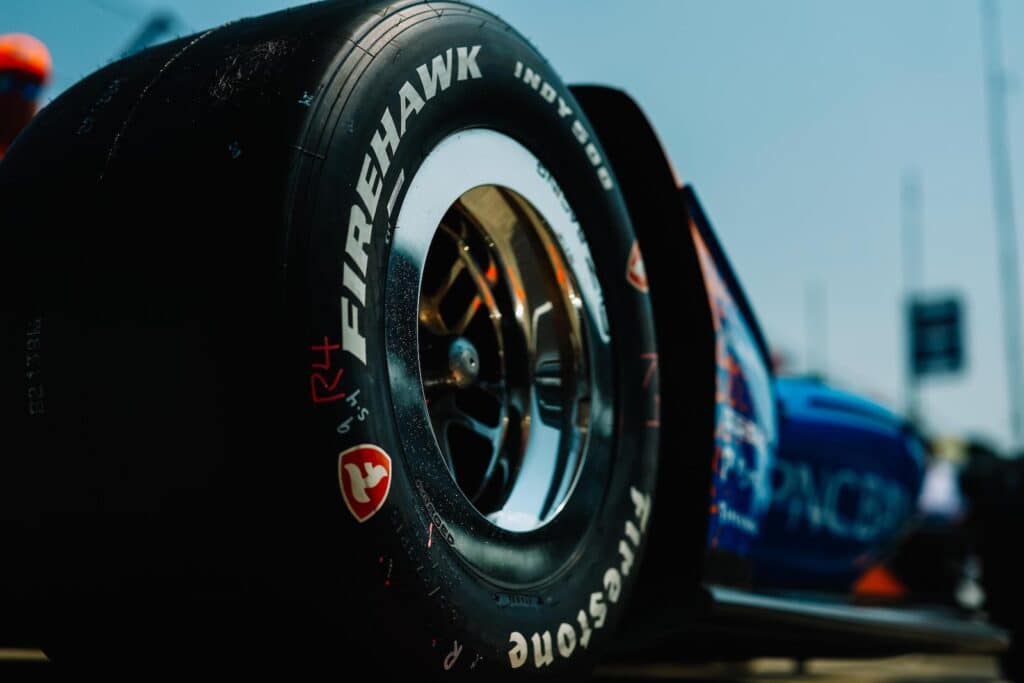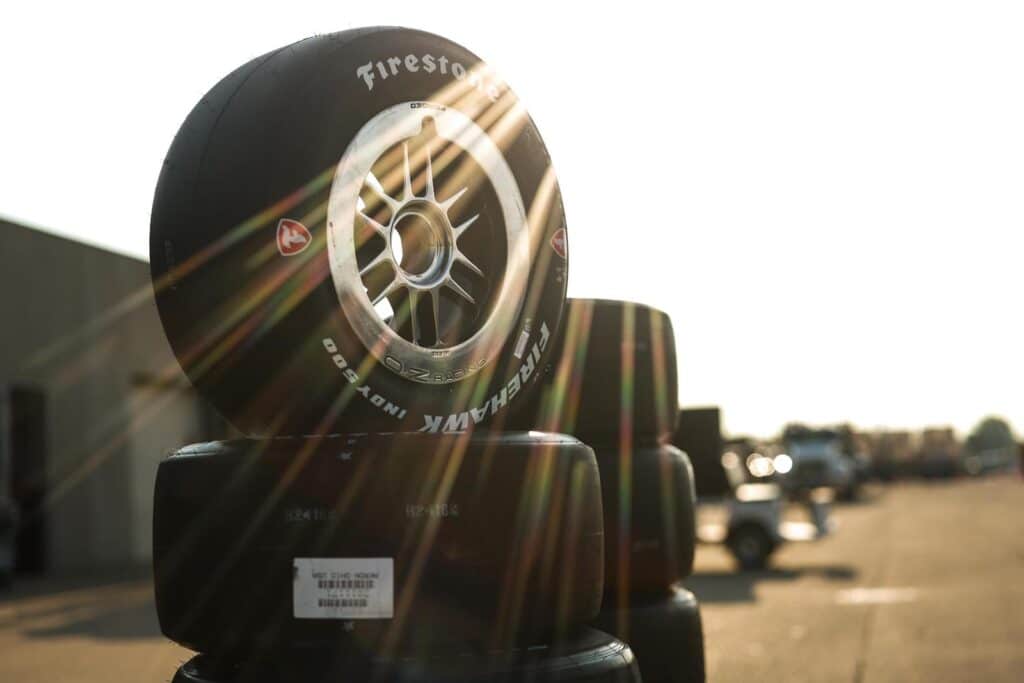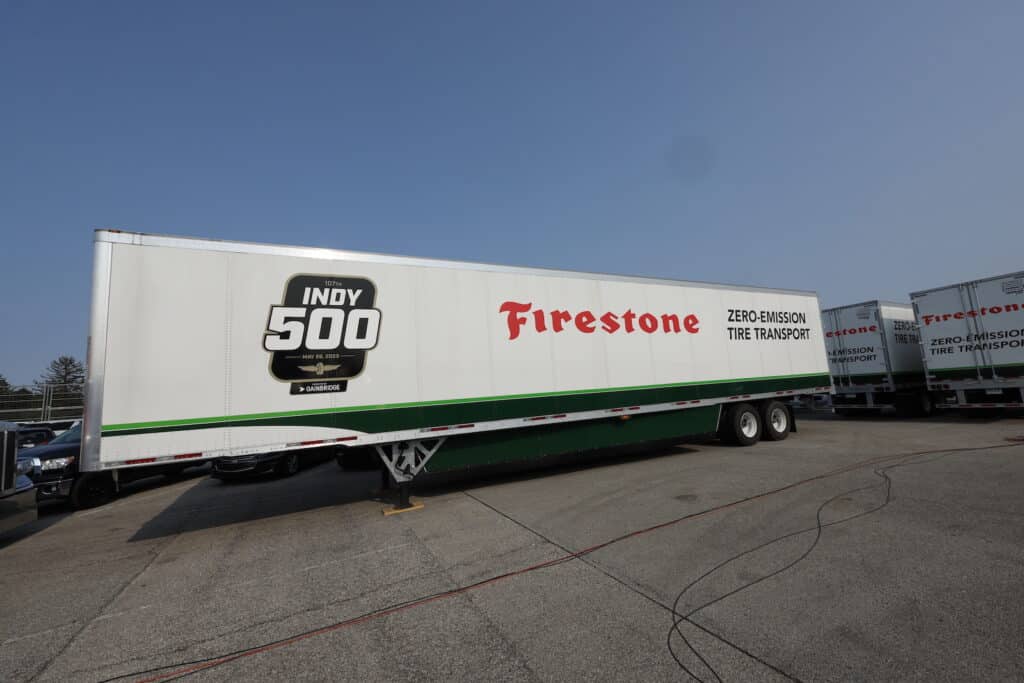Bridgestone Puts Recycled Plastic into Indy 500 Tires
Bridgestone Americas is the exclusive tire supplier to the IndyCar series, and for this year’s running of the Indianapolis 500, the company provided a new tire compound that uses recycled plastics in its construction.

The Firestone Firehawk race tires used at the Indy 500 include recycled butadiene, a material produced from consumer products such as plastic shopping bags, cling film, stretch wrap and other flexible polymers. The new material was developed in partnership with Shell plc. The new butadiene material used in the tires replaces a petroleum-based monomer, and it will be supplied by Shell.
“We’re pleased with the performance of our Firestone Firehawk race tires during practice and qualifying for the Indianapolis 500.” said Cara Krstolic, chief engineer, Bridgestone Americas. “Recycled monomer was used in the production of these tires and the tires have proven to maintain the same high standard of performance we expect.”
The new tires have been a critical part of multiple qualifying records set this year, including the fastest four-lap average speed for a pole winner from Alex Palou, set at 234.217 mph, the closest front row qualifying speed difference of 0.103 mph separating Palou from No. 3 starter Felix Rosenqvist, and the fastest starting field in Indy 500 history with an average speed of 232.184 mph.

Sustainable natural materials and manufacturing
The racing tires used at Indy this year also include natural rubber made from the guayule plant, grown in the deserts of Arizona. Firestone has been leading in the development of this alternative to rain forest-sourced rubber products.
Firestone Firehawk race tires with sidewalls made using guayule-derived natural rubber were first introduced at the Indy 500 Pit Stop Challenge in May 2022 as a first look before debuting in competition as the alternate race tire at the Big Machine Music City Grand Prix in last August. For the 2023 season, alternative tires using guayule-derived natural rubber have been expanded to all street courses.
Bridgestone is manufacturing all race tires for the 2023 IndyCar season at the company’s ISCC PLUS-certified Advanced Tire Production Center in Akron, Ohio. The ISCC PLUS certification was awarded to the facility Nov. 2, 2022, for its transparency and traceability of sustainable raw materials including bio, bio-circular and circular-based synthetic rubber.

The ATPC is one of five Bridgestone facilities in North America to be awarded the certification. Implementing more sustainable practices in its manufacturing facilities are a critical element of Bridgestone’s sustainability goals, including its aim to achieve carbon neutrality and tires made with 100% renewable and recycled materials by 2050.
“We are driving to increase sustainability in every area of our business, and we’re thrilled to showcase our commitment to sustainability in ‘The Greatest Spectacle in Racing’,” said Paolo Ferrari, president & CEO, Bridgestone Americas and Joint Global chief operating officer, Bridgestone Corp. “We are further committed to a thriving and more sustainable future in motorsports.”
Electric Transport
Additionally, Bridgestone partnered with Penske and Indianapolis Motor Speedway to transport all race tires to the Indianapolis Motor Speedway in all-electric 2023 Freightliner eCascadia trucks from Penske Truck Leasing’s fleet of electric vehicles.
For its part, IMS has installed a 15kW high-power electric charging station at the track last year to allow for convenient charging. Bridgestone and Penske officials said the collaboration is aimed at “helping to advance sustainable solutions in motorsports to reduce the sport’s impact on the environment and helping ensure fans can enjoy the thrills of racing for generations to come.”
Auto Lovers Land
Comments
Post a Comment